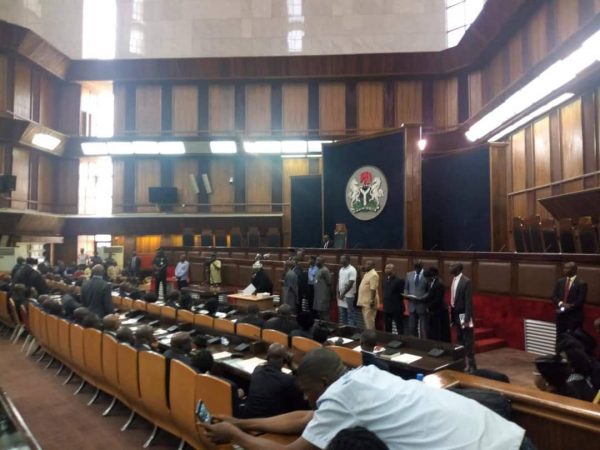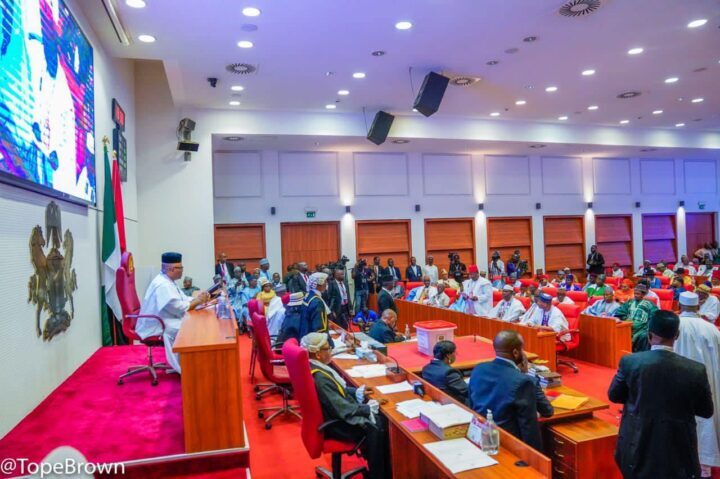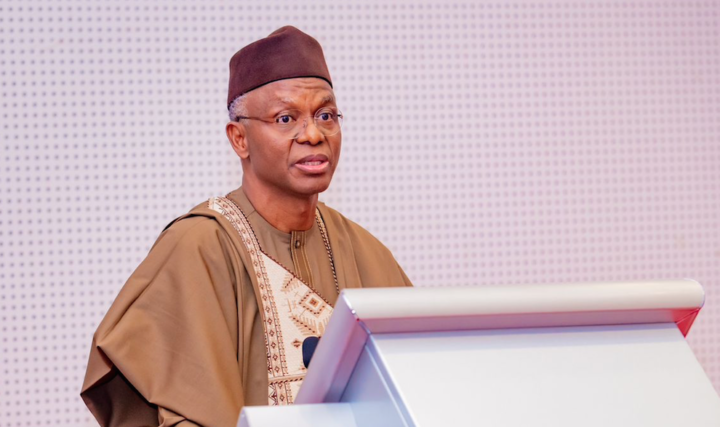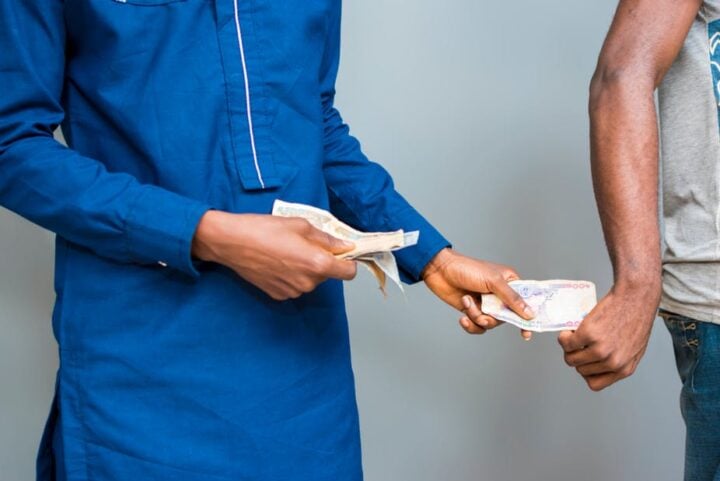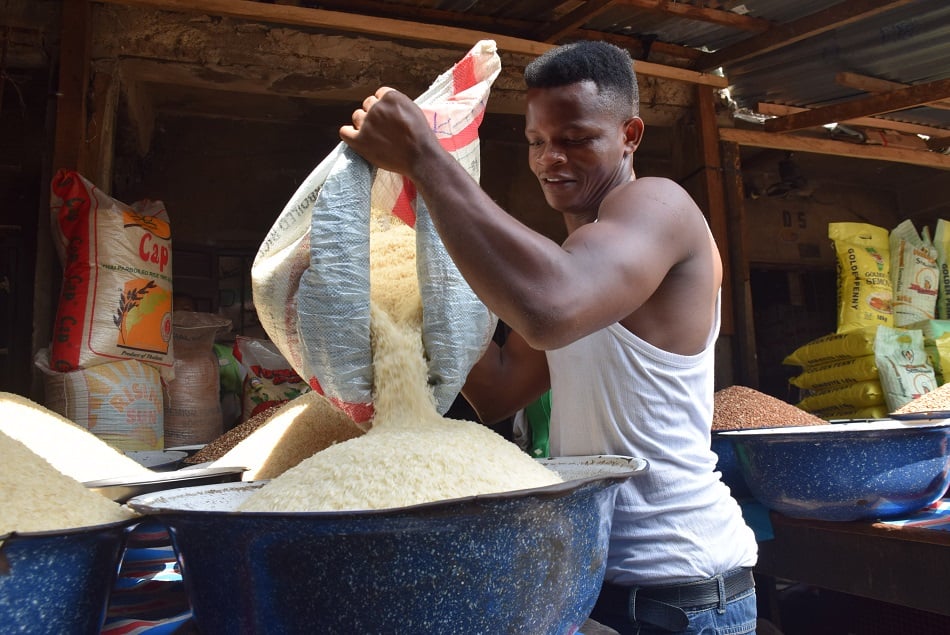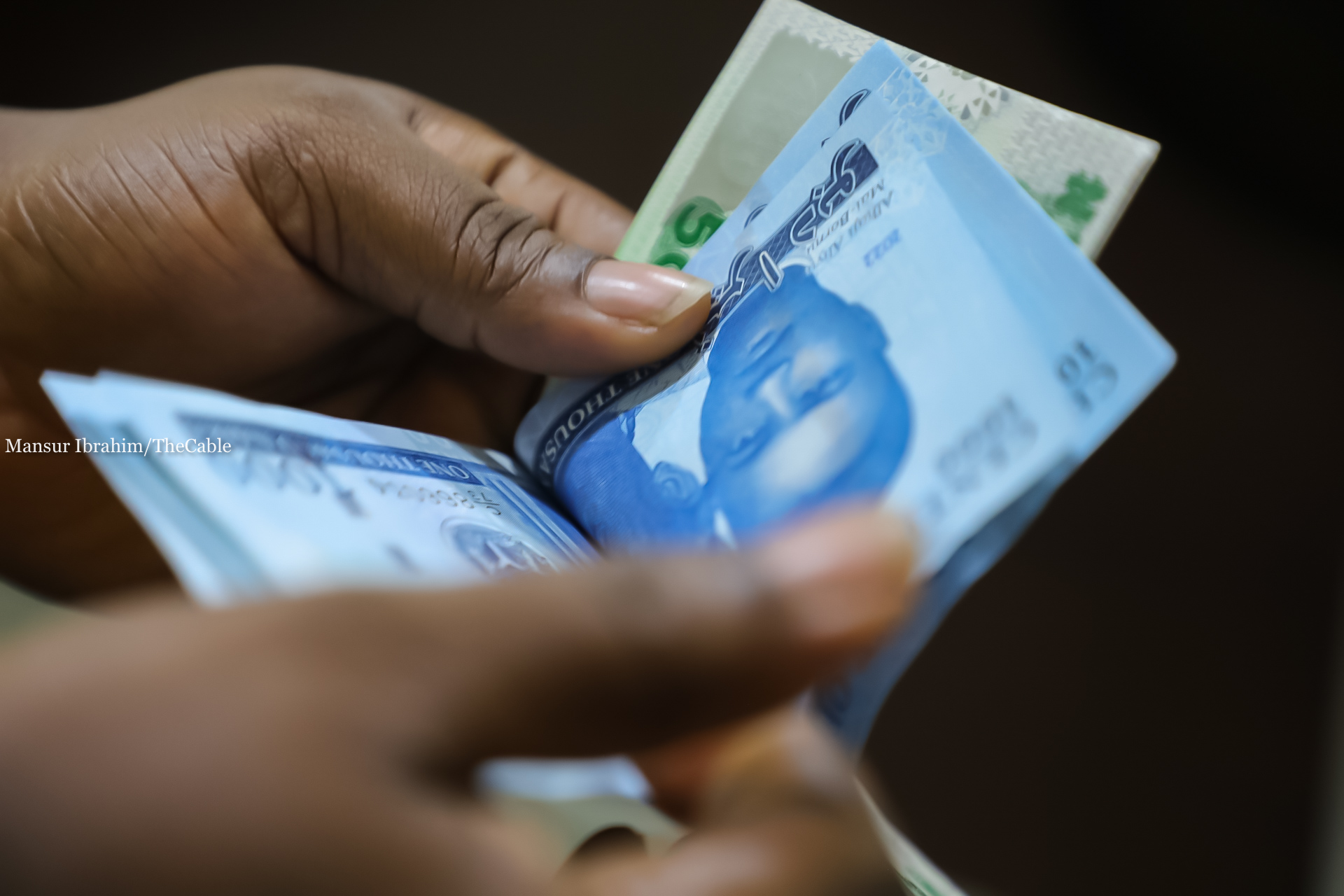The Nigerian Presidential Election Petition Tribunal has reserved its judgment. Apprehension and expectation are playing hide and seek in the air. Judgment Day is here. Theologians, writers and musicians have painted poignant colours of the judgment day. From the 1998-direct-to-video film of John Terlesky with that same title – Judgment Day – depicting disaster in the air as a giant meteor that would soon hit the earth, to the Italian Renaissance painter, Michelangelo’s fresco painting which he labelled ‘The Last Judgment’, judgment day has never been a tea party.
Rastafari-influenced Donald “Tabby” Shaw, Fitzroy “Bunny” Simpson and Lloyd “Judge” Ferguson of the legendary Jamaican roots reggae harmony trio called Mighty Diamonds, also painted a very scary and grim picture of this judgment day. There will be “weeping and wailing and mourning and gnashing of the teeth,” they sang, their dreadlock hairs making pendulum swings, as if in affirmation. According to them, it is a day “he and she will be judged/ according to the works they have done”.
The petitions filed by Atiku Abubakar, the Peoples Democratic Party (PDP)’s presidential candidate, and Peter Obi of the Labour Party (LP) against the Independent National Electoral Commission-announced electoral victory of the All Progressives Congress, (APC) are nearing their denouement. Those who are affiliated with political parties and candidates of the February 2023 elections who have a history of high blood pressure must, by now, be regularly and faithfully taking dosages of their drugs. Judgment day is nigh, as the holy book says. Nigeria’s version of Michelangelo, Mighty Diamonds and Terlesky’s Judgment Day will be dispensed by a five-man panel led by Justice Haruna Tsammani.
In 1997, there was equally apprehension in the Kenyan sky. In the midst of the reddish firmament, Mwai Kibaki was however very hopeful. He had been announced as coming second against incumbent, Daniel Arap Moi, in the presidential election of that year. According to official results released by the Kenyan electoral commission, Mwai scored 1, 895,527 votes as against Moi’s 2,440,801 votes. Convinced that he had been electorally shortchanged, Mwai filed an action to void the election. He alleged that a horde of malpractices that violated electoral rules had been committed by the incumbent president. Weeks of judicial razzmatazz and mountains of evidence he provided combined to assure him that he would have the day.
Advertisement
On judgment day, as the panel of judges reeled out their figures, Kibaki was still full of optimism, just as River Zambesi regale the world with its huge quantum of water. Then, the dispenser of judgment spoke. Everywhere was silent. And… the petition was flung off the panes like a dirty, soggy rag! The judges climbed the ladder of technicalities to arrive at this frightening junction. Facts suffered colossally. Kibati’s petition was dismissed for “improper service”. In serving the petition against President Moi, ruled the judges, the petitioner fell short of electoral criteria. He had served the petition by publishing it in the Government Gazette. Kibati’s averment was that Moi, as president, was “surrounded by a massive ring of security which is not possible to penetrate”. The judges temporarily became blind to this fact.
Africa’s elections are always torn apart by defects and fraud. Anomalies and disputed results erupt at each election cycle. While the democratic waves of the 1980s and 1990s signified some improvements in elections on the continent, sham elections are still as prevalent as poverty and diseases. Where elections have been held, almost all the time, aggrieved parties angrily go to the judiciary as their last hope to seek redress. Except in a few negligible instances, however, the judiciary has almost always decided presidential election disputes along a particular route: the status quo. The case of Tanzania is even queer as its constitutional provision ousts judicial jurisdiction in hearing challenges to presidential elections. Article 41(7) of the Constitution of the United Republic of Tanzania states unequivocally that: “When a candidate is declared by the Electoral Commission to have been duly elected in accordance with this article, then no court of law shall have any jurisdiction to inquire into the election of that candidate”.
This status quo was undoubtedly what President Bola Tinubu referenced at the PEPC last month. Asking the court not to nullify his INEC-announced victory, he averred, through his lead counsel, Wole Olanipekun, that strictly and disjunctively reading the constitutional provisions concerning Abuja and Tinbu’s failure to secure 25% of the lawful votes in the FCT, rather than conjunctively with other provisions of the constitution and thus nullify the election, would bring anarchy in Nigeria. At the election, while INEC announced 8,794,721 votes for Tinubu, it gave Atiku 6,984,520 and Obi, 6,101,533.
Advertisement
Lamentations are mounting on how men in Khaki gun their way into presidential palaces in Africa. The latest is Niger. One of the principal reasons putschists give for their irreverent stomping on democratic governance is the absence of electoral legitimacy in mandates that propel African leaders into office. Many writers have singled out the African judiciary as enablers of these khaki lords. They say that African judges’ flimsy dismissal of electoral cases on the basis of technical flaws and non-adherence to electoral procedural rules, leading to failure to give consideration to merits, seems to render African judges as emergent guns in the hands of civilian dictatorships. This is said to make the judiciary fully complicit in the various stases suffered on the continent in the consolidation of electoral democracy.
Take for example Cote d’Ivoire. In 2010, all eyes were on the Ivoirian judiciary. Coming from years of conflict and instability, elections were eventually held in this French-speaking African country. After the first round, no winner was produced and a run-off was ordered which pitted incumbent Laurent Gbagbo against the main opposition candidate, Alassane Dramane Ouattara. After this highly charged election, the chairperson of the Independent Electoral Commission, (IEC), Youssouf Bakayoko, announced Ouattara winner with 54.1% of votes cast. Gbagbo was announced to have scored 45.9%, leading to Gbagbo heading for Cote D’Iroire’s constitutional council. His pleading was for the court to annul Ouattara’s announced election on claims that the elections were massively rigged in Ouattara’s northern stronghold. Without an adequate response from Ouattara, the council then voided almost 600,000 votes belonging to Ouattara and declared Gbagbo the winner with 51.45% of the votes cast. Some of the grounds for the nullification of Quattara’s election sounded spurious and queer. One was that results were announced in a hotel rather than IEC’s office. Second, results were announced outside of the prescribed three days by the constitution. The 600,000 votes nullified could not be substantiated on account of either ballot theft or over-stuffing.
The same thing happened in 2012 in the Ghanaian case of Nana Addo Dankwa Akufo-Addo and John Dramani Mahama. The petitioner had raised the main issue of allegations of over-voting and voting without biometric verification which the law required; absence of signatures of presiding officers on some results sheets, contrary to the law; and the occurrence of the same serial numbers for different polling stations. His averment was that, upon the deduction of alleged tainted votes from announced votes, the man eventually declared president-elect, Mahama, could not have garnered the 50 percent-plus-one-vote that the Ghanaian constitution required for a majority win at the said election.
On judgment day, the majority of the judges submitted different reasons why the election must be upheld. The most instructive was that, granted the presence of these complained anomalies, the conduct of the election was in “substantial accordance with the constitution”. Lawyers quarrelled with such jurisprudence as queer and worrying. Why wish away anomalies that were patently contrary to the constitution? To take them to account translated to mean that the man who was declared winner of the election failed to so qualify. Retired Ghanaian Justice of the Supreme Court, Sophia Ophelia Adjeibea Adinyira, and member of the United Nations Appeal Tribunal had submitted that in her view, “public policy favours salvaging the election and giving effect to the voter’s intention”. Legal dinosaur, Lord Denning, had stated that, contrary to the Ghanaian court ruling, even if an election is substantially held in accordance with the law, yet assailed with minor infractions that have an effect on the result, the election is vitiated and voidable.
Advertisement
What will the Justice Tsammani-led PEPC do on judgment day which is a few days from now? Or, put differently, what do I think the PEPC will do? It will fly without perching, keeping feathers ruffled, regrettably. The Nigerian judiciary cannot afford to disappoint the company it keeps in the African desert of justice. What then will happen? Nothing! Absolutely nothing! Call me a pessimist, but there will be some huff and puffs on social media and our natural inclination to go inside the cocoon of religious resignation and mundane issues of tribe and personal alliances will take an upper hand. And we will continue another cycle of underdevelopment which Africa is destined to. Like the Greek god Sisyphus condemned to push the boulder to and fro from creation to eternity, we will.
France, your Queendom is falling!
Zimbabwe-born medical doctor and activist, Arikana Chihombori-Quao’s viral video which hit airwaves last week evokes the music of iconoclastic Jamaican reggae musician, Peter Tosh. The video explains the rebellion going on in the Sahel against France. In Tosh’s system-bashing, anthem-of-resistance song, a call to action against the evils of colonialism and oppression, the coup in Niger Republic and France’s decades of paternal oppression against French-speaking Africa get graphic detailing. His Mystic album, especially the track Babylon, your Queendom is Falling, is pregnant with a powerful lyricism that is unpretentious against colonial oppression. It calls on black people of the world to reclaim their hearts, their lands, culture, heritage and humanity from the stranglehold of colonisers. Tosh especially chose the oppressive colonial and post-colonial system that underdeveloped black people for censure. He labelled this power structure system that has enslaved and exploited black people in the world for centuries as “Mystery Babylon”. The concept of white supremacy and its Queen(King)dom is falling, Tosh sang: “Mystery Babylon, your Queendom a falling/Tumbling down/And Rahab, a Ethiopia calling…”
If you call Tosh a prophet, you would not be mistaken. As the lyrics lament white oppression, wrapped in fluid-flowing and danceable tune, Tosh addresses the systematic downfall of Babylon and how Ethiopia, regarded as the promised land of Africa, is rising in rebellion from its ashes of oppression. After so many decades of sustenance of black people’s oppression from the capitals of oppression of the world, Tosh sang, the Babylonian system is meeting its waterloo as the oppression is coming to an end. He made a biblical allusion to Rahab and then to Ethiopia, the only African country never colonised. Rahab was the prostitute from Jericho who helped Joshua and his army in the conquest of the city of Jericho and his reference to Ethiopia was a call for the overthrow of the white oppressive system in Africa.
Advertisement
Tosh sang effusively in the Jamaican patois with optimism that all that was stolen from Africa and taken to Babylon would be returned after the system’s overthrow: “Gimme back mi gold, mi ruby an mi diamond…sent I sons and daughters from a far off… I said all those that are called of I name…Gimme back mi zebra, mi lion an mi tiger… Gimme back mi land, mi language and mi culture… I said, take back your chink, your roach and mosquito…” He asked for the repatriation of all stolen invaluable possessions which he symbolised with gold, diamonds, rubies, zebras, lions, tigers, land, language and culture, rudely and crudely stolen by stealth by white colonisers.
In the viral video, Chihombori-Quao appeared on Eye Gambia, alongside other commentators. She gave a present-day bite to the Tosh song, especially France and French-speaking African colonial and post-colonial relations. Former African Union representative to the United States from 2017 to 2019, Chihombori-Quao viewed Africa with the same lens that Tosh looked at the continent’s underdevelopment. This outspoken Zimbabwean, renowned for her caustic review of the implications of the Berlin Conference in Germany in 1885, made some earth-shaking revelations that put the coup in Niger and the rebellion in the Sahel in perspective. Chihombori-Quao is known for her rave lectures delivered on the outcome of the selfish, self-centred and haphazard partitioning of the African continent in Berlin. To her, that division is responsible for the multiplication of Africa’s problems and why, in the words of Walter Rodney, Africa remains underdeveloped.
Advertisement
“The government of France has significant control over all their former colonies, specifically 14 of them. When they were giving them independence, they forced them to sign a document which they called the pact for the continuation of colonisation. On one hand, they say we are giving you independence which comes out to be political independence but that you have to sign this document… You are going to be independent, but you have to agree to continually be colonised. Two countries said, absolutely not, they (were) not going to sign the document. They are Mali and Guinea. What the French did was that, they entered those countries, took everything that they thought they brought into those economies, poured concrete into sewage pipes and completely devastated the two economies. They did this to let other countries know that if they (did) not sign this document, this (was) the fate that (awaited them).
“The impact (was) terrible. The pact that that those countries had to deposit 85% of their bank reserves with the French Central Bank, under the control of the French Minister of Finance and should those countries wish to request some of those monies – remember they are only left with 15% of their reserves – they have to submit financial statement for the country and if approved, they can only access up 20% of whatever they had deposited year before as a loan at a commercial interest rate. The only difference now is the 85% deposits have now been lowered down to maybe 50 and 60% but the countries are still forced and required to deposit their bank reserves with the French Central Bank.
Advertisement
“Now, picture this situation: you are depositing your monies with France. Should you need some of your money, you get it as a loan at commercial interest rates. Immediately, you have credit with France, but you begin to owe France! This has been going on and continues to this day. So, combined, the 14 countries are giving France cash of over $500 billion every year and France takes that money and invests it in its own stock market under the French name… Currently, for every 14 billion that France takes out of Africa, by the time they finish investing it in the French stock market, they realize upwards of $300 billion so you do the maths to see how much France takes out of Africa every year. And France has the audacity to then look at African countries and call them poor. Why would poor African countries give France $500 billion year in year out? But what gets me the most is, how does the world sit back and watch this carnage take place in Africa? Where is the United Nations? This is the body that is supposed to be looking for any violation of human rights. It is my humble opinion that, singularly, what France is doing to Africa is the biggest violation of human rights. Women and children are dying of starvation, youth unemployment and these same poor countries are giving $500 billion to France. It simply does not make any sense and I don’t know how the world can sit back and watch all this unfold and nobody is saying anything. It is unacceptable. It is wrong and we are simply asking France to do what is right, what is just and right with Africans,” she said.
Ahmed Sekou Toure was the president of Guinea who refused to sign that pact of servitude. He rejected the French and its bid to appropriate the wealth and farmland of Guinean traditional landlords. He was famous for the lingo that: “Guinea prefers poverty in freedom to riches in slavery” and argued that Africa lost its essence and future during colonisation. He advocated that Africa should retaliate by cutting off ties with her former colonial masters and clinging to the apron of the West as their puppeteers. He also voiced his distrust of other African nations.
Advertisement
The above Chihombori-Quao submission may sound inscrutable, horrific and frightening. Another video, which went viral recently, was of Sierra Leonean-German multi-faceted social entrepreneur, Mallence Bart-Williams. At a Ted event, she explained the chaos and crises in Africa and said that chaos in Africa is orchestrated because of the resources of Africa that are cheaply and fraudulently taken out of Africa. “A healthy and thriving Africa will not disperse its resources as freely and cheaply… which in turn may destabilise and weaken western economies established on the post-colonial free meal system,” she said. Affirming France’s yearly collection of foreign reserve deposits from Africa posited by Chihombori-Quao, she said France based it on “colonial debt which they force them to pay”. This, she said, was affirmed by former French president Jacques Chirac who an interview said that “we have to be honest and acknowledge that the big part of the money in our banks comes precisely from the exploitation of the African continent” and that in 2008, Chirac said that without Africa, France will slide down in the ranks of third world powers”.
Another expose has put the animosity against the new military rulers of Niger to the pipeline project that passes through the republic on the way from Nigeria to Europe. The uranium deposit in Niger is also the contention, a mineral that Europe has been stealing from Africa for decades. The resistance against the new junta, a regime that has promised to disconnect the stealing and cheap sales of is “the quest to gain back their wealth, the uranium, gold, iron, phosphate, iron and gas and this scares the west”. In this quest to regain their national sovereignty, delink from being a European colony and Russia is backing French-Africa. This incenses the West and America.
This is why the Bola Tinubu-led ECOWAS’s resistance to the revolution going on in Niger and other Francophone African countries is benumbing. Some have alleged that the post-colonial planting of puppeteer governments in Africa, held by the CIA, MI6 and other intelligence services, may just be the explanation. The overwhelming voices in Africa right now are that the imperialists, Peter Tosh’s “Mystery Babylon,” should get out of the continent. If ECOWAS does not listen to the voice of reason and continues to abet America and the West’s continued servitude of Africa, they will be footnotes and flotsams of history when today’s story of their people’s rebellion against puppeteers is told.
Abbey at 70
The headline of this piece is almost a heresy. Unbeknown to him, our boss at the Tribune Newspaper House, Imalefalafia, Abiodun Oduwole, Fellow of the Nigerian Guild of Editors (FNGE) was known and called by his junior staff as simply Abbey. We, however, dared not bring this appellation to his attention. Abiodun Oduwole, Editor-in-Chief of the Tribune Newspaper in the 1990s, was identified by that funkivised inflection of his name by his junior staff like me. Those who belonged to his school called him EiC, the shortened form of his title. Perhaps, that was our own way of taking our pound of flesh from him. Oduwole loomed too large at Imalefalafia that any attempt to deconstruct his mystique was welcomed. When his car entered the premises of the newspaper house, staff in the know of his entrance gleefully volunteered information to others that he had barged on the party of reporters who took time out to relax from their exerting duty by engaging in office prattles. “EiC is around!” whistleblowers announced. And everybody pretended to be at their worktables.
Last week Friday, EiC was 70 years on earth and his protégés walked up to him at an Ibadan event centre to celebrate him. That ice of the fearsome boss had thawed considerably. You could even throw banters at him! The junior staff of those days had become bosses themselves. The boss was so genial, so harmless, so de-fanged that you began to wonder what the matter was. But for the tiny grey on his temple, Oduwole hadn’t changed a bit!
Oduwole is a story I have told repeatedly. But for his recognition of excellence – apologies for that immodesty – I probably wouldn’t be what I am today. Fresh from the University of Ibadan in 1995 as a graduate student of the Department of Political Science, with over a hundred published works, Oduwole had recognised me. As he leafed through my published works in virtually all Nigerian newspapers, with one of his mentees, Sina Kawonise, sitting on a sofa and egging him on to give consent to my appointment, Oduwole had told Segun Olatunji, now a PhD holder, and the editor of the Tribune on Saturday and Sunday, to immediately recruit me. That recruitment is the incubator of what I am today.
Oduwole taught us the rudiments of journalism. He was a stickler for journalism rules and procedures. If you envied column-writing as I did, his Cock-a-too column was enough material for a mentee. Oduwole laid the foundation of what we are today.
So, on Friday, we filed out to celebrate his 70th birthday. Looking twenty years younger than his age, we did not allow history to stand in our way. He too was very happy that God had used him for our advancement. He had morphed from the youthful Oduwole, thrown hither thither by the winds of age, into an elder to boots, even becoming a pastor in a pentecostal church. One of his mentees, Victor Oluwadamilare, summed up our general impression of what time had made of our boss thus: “If Oduwole could become what he is today, then no one is incapable of becoming a disciple of Jesus Christ,” he said. We all agreed.
This is wishing our boss, mentor and pathfinder, Biodun Oduwole, a happy 70th birthday.
Views expressed by contributors are strictly personal and not of TheCable.

